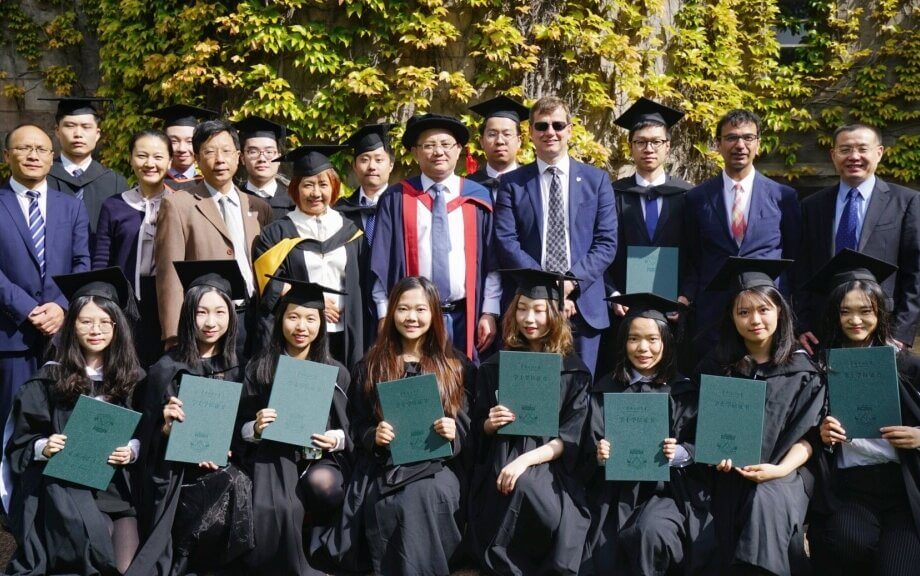Chinese Students Question Value of UK Degrees Amid Rising Costs and Visa Changes
For years, the United Kingdom has been a top destination for Chinese students seeking advanced degrees, drawn by the prestige of British universities, relatively short postgraduate programs, and the promise of global career opportunities. However, a wave of new government policies and economic pressures is causing many young Chinese to reconsider whether a UK education is still worth the investment.
What Is Driving the Shift?
Recent months have seen a series of changes that directly impact international students. In May, the UK government proposed a new “education levy”—a 6% surcharge on international students’ tuition fees. This comes on top of already rising tuition costs, with some universities, such as York, increasing fees by as much as 12% in early 2024. The financial burden is further compounded by a weakening exchange rate, making the pound more expensive for Chinese families.
At the same time, the UK is tightening its immigration policies. A new government white paper suggests reducing the post-study work visa from two years to 18 months and raising the threshold for permanent residency from five to ten years. These changes make it more difficult for international graduates to remain in the UK after finishing their studies.
Student Reactions: Weighing Costs and Opportunities
For many Chinese students, these developments have created uncertainty and anxiety. Aroma Wu, a recent graduate, initially planned to pursue a master’s degree in the UK to boost her credentials for China’s competitive tech industry. But after learning about the new levy and stricter visa rules, she decided to study in Hong Kong instead, saving an estimated 100,000 yuan (about $14,000) compared to UK tuition. “It was too much all at once,” Wu said. “Tuition fees are rising, visas might be cut, and now there’s a new tax? I felt overwhelmed.”
Others, like Shirley Wu, are hedging their bets by applying to universities in Germany and Australia as alternatives. “It’s already hard for people with business backgrounds to find work visa sponsors in the UK,” she explained. “If the exchange rate gets worse and they add an extra tax, the quality of life drops even more.”
Why the UK Remains Attractive—For Now
Despite these challenges, the UK continues to attract large numbers of Chinese students. According to the Higher Education Statistics Agency, nearly 150,000 Chinese students were enrolled in UK higher education institutions in the 2023-2024 academic year. The UK’s appeal is rooted in its globally recognized degrees, shorter program durations, and the perception of political stability compared to the US, where recent visa crackdowns have made American universities less accessible.
Education consultant Guan Wen notes that most Chinese students never intended to settle in the UK long-term. “The new UK policies have made students more cautious, but overall interest hasn’t dropped dramatically,” he said. “Most Chinese students still plan to return home after graduation. The UK never had generous work visa policies anyway.”
Economic Pressures on UK Universities
British universities are facing their own financial challenges. Domestic tuition fees have been frozen for years, failing to keep pace with inflation. As a result, universities increasingly rely on higher fees from international students to balance their budgets. Chinese students alone contribute an estimated £5.5 billion ($7.4 billion) annually to UK universities, with some institutions depending on them for more than 10% of their income.
To remain competitive, some universities are exploring partnerships with Chinese institutions and offering scholarships or joint degree programs. However, the rising costs and policy uncertainty risk undermining the UK’s reputation as a welcoming destination for international talent.
Global Competition and the Future Outlook
The UK is not alone in facing these challenges. High youth unemployment and fierce competition for postgraduate places in China mean that many students still see overseas study as their best option. However, as other countries like Germany and Australia offer more affordable tuition and friendlier visa policies, the UK may find it harder to maintain its edge.
Ella Zhu, who is preparing to start a one-year master’s program in Glasgow, summed up the dilemma: “Even if the UK keeps raising tuition, we have to put up with it to improve our job prospects back home.” For many, the prestige of a UK degree and the advantage it offers in China’s job market still outweigh the rising costs—at least for now.
In Summary
- UK universities are raising tuition fees and introducing a new education levy for international students.
- Stricter visa and residency rules are making it harder for Chinese graduates to stay in the UK after their studies.
- Some Chinese students are reconsidering or abandoning UK study plans, while others are seeking alternatives in Europe or Australia.
- Despite challenges, the UK remains a top destination due to its global reputation and the competitive pressures in China’s job market.
- UK universities’ financial dependence on international students may drive further policy changes and outreach efforts in the future.












